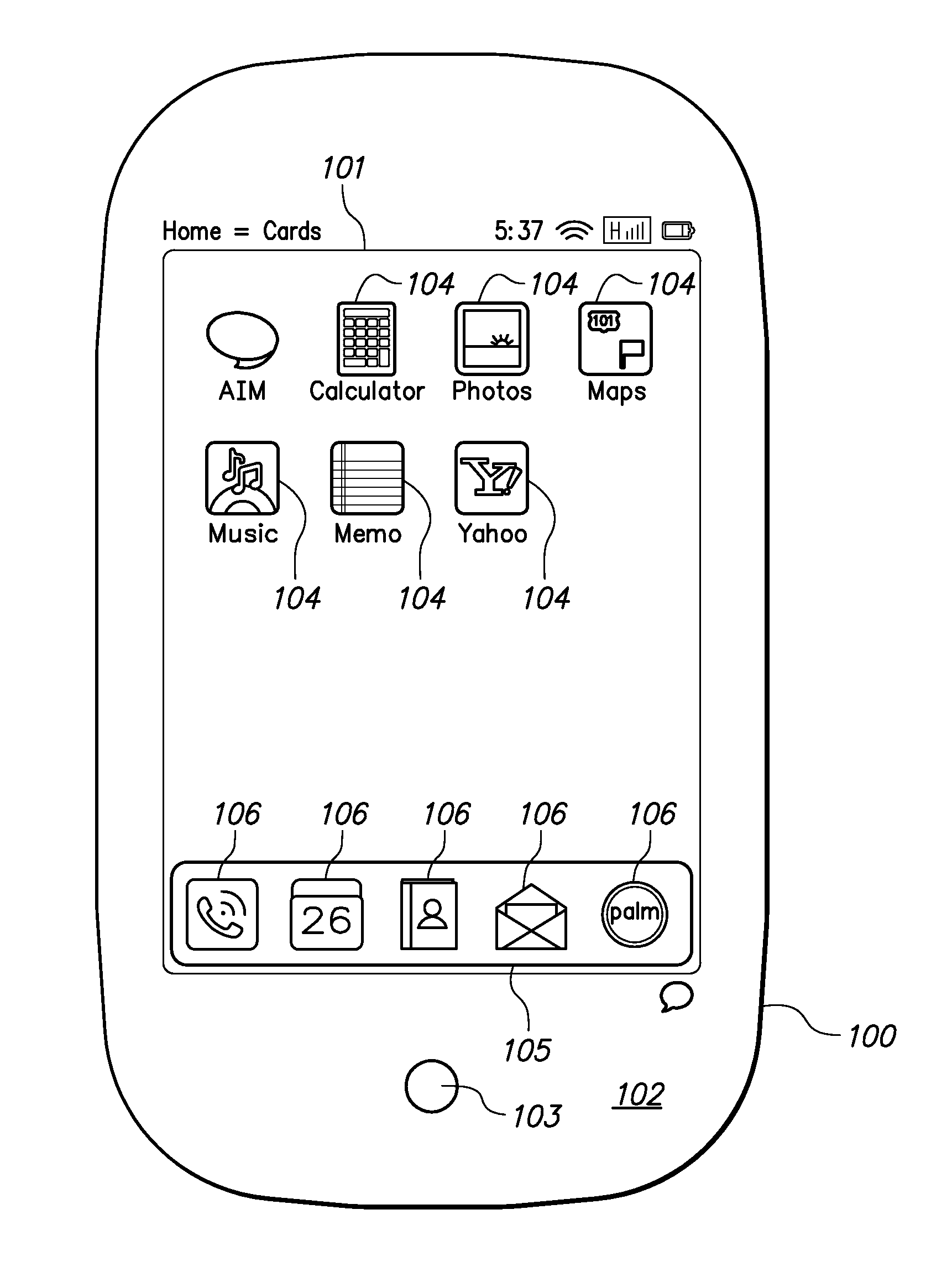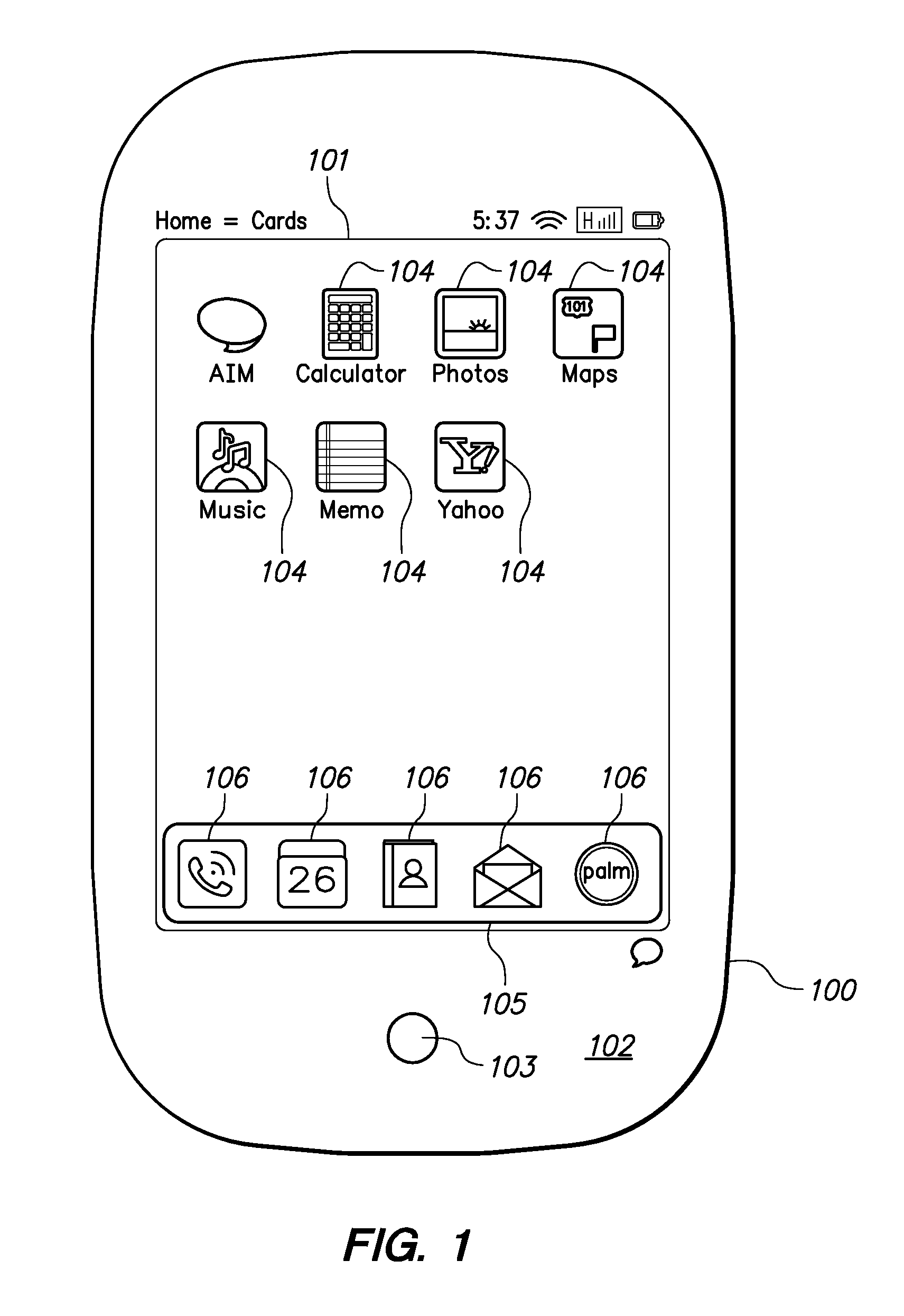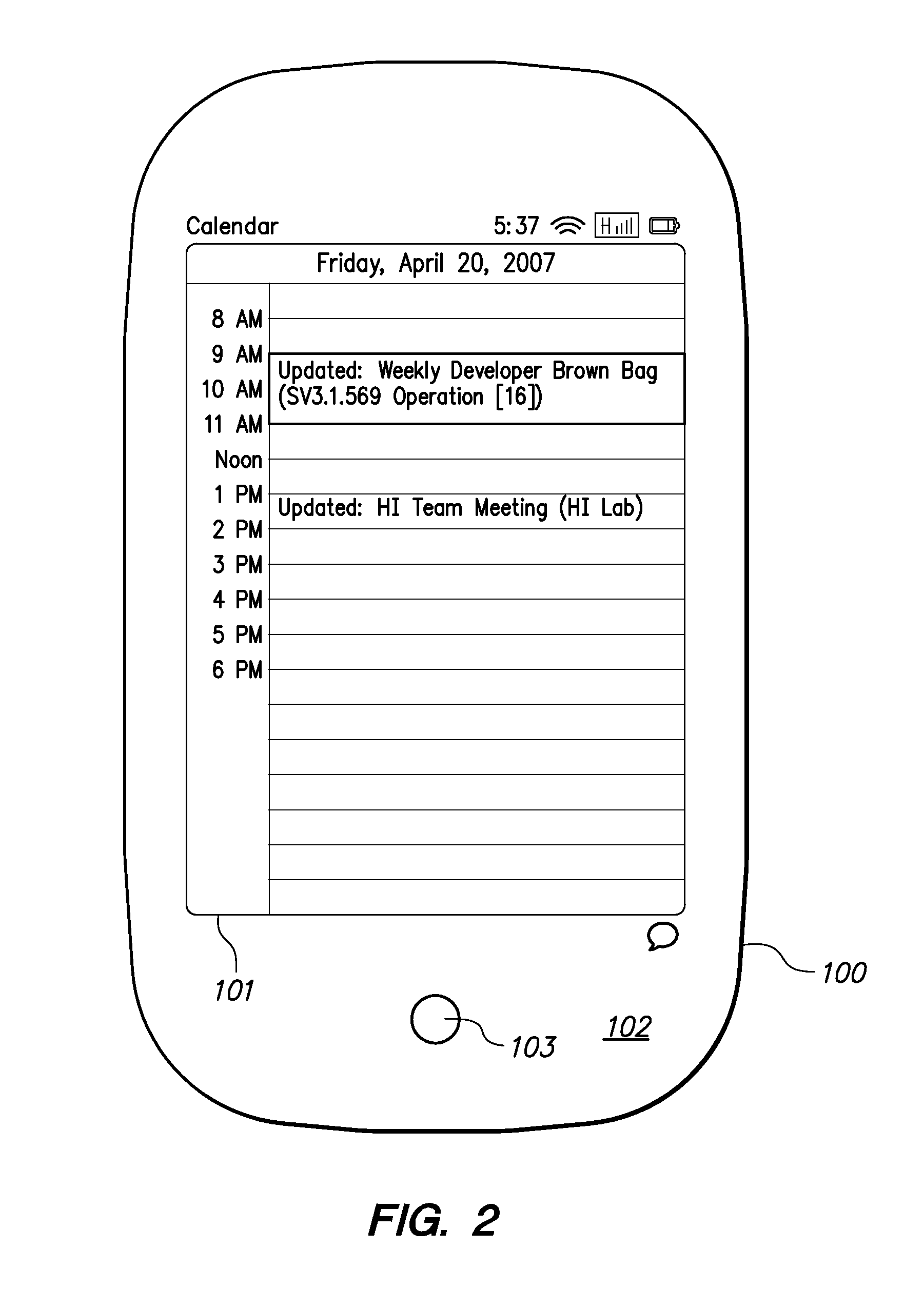Navigating Among Activities in a Computing Device
a computing device and activity technology, applied in computing, instruments, electric digital data processing, etc., can solve the problems of reducing workspace, large screen size, and difficulty in using applications, and achieve the effect of simplifying the positional relationship between windows
- Summary
- Abstract
- Description
- Claims
- Application Information
AI Technical Summary
Benefits of technology
Problems solved by technology
Method used
Image
Examples
Embodiment Construction
[0037]In the following description, reference is made herein to “activities”. In the context of the present invention, an “activity” is intended to include a software application, a task, a document, a page, and / or any other activity that can be performed in connection with an electronic device. As described herein, the present invention provides techniques for starting and ending activities, and for switching among activities.
System Architecture
[0038]The present invention can be implemented on any electronic device, such as a handheld computer, personal digital assistant (PDA), personal computer, kiosk, cellular telephone, and the like. For example, the invention can be implemented as a feature of an application management paradigm for a software application or operating system running on such a device. Accordingly, the present invention can be implemented as part of a graphical user interface for controlling software on such a device.
[0039]The invention is particularly well-suited...
PUM
 Login to View More
Login to View More Abstract
Description
Claims
Application Information
 Login to View More
Login to View More - R&D
- Intellectual Property
- Life Sciences
- Materials
- Tech Scout
- Unparalleled Data Quality
- Higher Quality Content
- 60% Fewer Hallucinations
Browse by: Latest US Patents, China's latest patents, Technical Efficacy Thesaurus, Application Domain, Technology Topic, Popular Technical Reports.
© 2025 PatSnap. All rights reserved.Legal|Privacy policy|Modern Slavery Act Transparency Statement|Sitemap|About US| Contact US: help@patsnap.com



